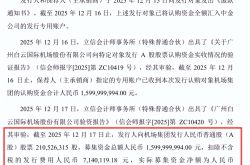Taobao's approach to Singles' Day has changed significantly this year
![]() 10/17 2024
10/17 2024
![]() 540
540
By Dou Wenxue
Edited by Ziye
With nearly a month to go until November 11, the major e-commerce platforms have already kicked off their Singles' Day promotions in full swing.
On October 14, Alibaba, Pinduoduo, and JD.com all launched their Singles' Day events on the same day. Xiaohongshu started its annual shopping extravaganza on October 12, while Douyin began its Singles' Day promotion after the National Day holiday, which is expected to last until November 30, including the encore period.
In addition to extending the promotional period, major platforms have also intensified their discounts.
For example, Kuaishou e-commerce offered 20 billion RMB in traffic subsidies, 2 billion RMB in user red packets, and 1 billion RMB in product subsidies during Singles' Day. JD.com introduced a cross-store discount where customers can get 50 RMB off for every 300 RMB spent, with a maximum discount of 40,000 RMB. Users can also claim an additional 60 RMB subsidy daily.
As the pioneer of the "Singles' Day shopping spree" in the industry, Taobao's approach has significantly changed this year.
At this time of year, characterized by "low prices," Taobao is no longer emphasizing the lowest prices across the internet but is striving for rational low prices to balance the ecosystem between consumers and merchants.
On the one hand, like other platforms, Taobao is offering various large coupons and subsidies to provide consumers with affordable products and services. On the other hand, Taobao has intensified its support for merchants during this Singles' Day, reducing their burden through commission-free promotions and store broadcasts.
In fact, Taobao's strategy for Singles' Day echoes the many changes that have occurred this year.
Since the beginning of the year, Taobao has eased its previous low-price strategy and revised the "Five-Star Price Power" store evaluation system after 618, placing less emphasis on order volume and refocusing on increasing GMV.
Regarding the controversial "only refund" policy, which has caused much frustration among merchants, Taobao optimized it before Singles' Day to reduce unreasonable refunds and protect merchants' rights.
Furthermore, Taobao facilitated two barrier-breaking collaborations before Singles' Day. First, it integrated WeChat Pay, and then partnered with JD.com to offer JD Logistics as a new shipping option for Taobao merchants. These moves are all aimed at attracting users and promoting growth.
Taobao has struggled with growth for a long time, and this year's Singles' Day is a battle it must win.
1. Taobao has changed its strategy repeatedly this year, preparing for a major test during Singles' Day
In recent years, facing competition, Taobao has actively joined the low-price war.
Throughout last year, Taobao promoted a product evaluation system called "Five-Star Price Power" and once emphasized DAU over GMV, intending to boost user activity and product sales through low prices and sign-in red packets. However, this strategy failed to deliver high-quality DAU, and relentless price competition squeezed merchant profits while failing to retain customers poached by competitors.
Therefore, Taobao no longer wants to focus solely on low prices this year.
According to 36Kr, Taobao's low-price strategy is gradually being weakened.
From Taobao's initiatives this year, it is clear that its mindset has shifted from "attracting users with low prices" to "impressing users with details."
For example, it has introduced free shipping to Xinjiang, pay-after-use services, and significantly invested in free shipping for 88VIP members.
Taobao has also redesigned its mobile app interface, embedding an entry for "Billion Subsidy" on the homepage and adopting a clean and simple design.
According to 36Kr, Taobao also terminated unnecessary startup items in the second quarter, optimized caching, and reduced app opening time by several seconds.
In addition to adjusting its low-price strategy and providing convenience to consumers, Taobao has upgraded merchant tools, mechanisms, and strategies.
After 618, Taobao further weakened the "Five-Star Price Power" system, allocating search traffic based on GMV rather than DAC (order volume), focusing instead on GMV and AAC (average spending per customer).
In June, Taobao introduced a new merchant rating system, including "Store Experience Score" and "Product Experience Score."
The new scoring system evaluates stores based on objective indicators over 30 days instead of subjective evaluations over 180 days. The scoring criteria have also been upgraded to include more objective and comprehensive evaluations of the product, logistics, and evaluation systems, facilitating merchant operations.
To address discrepancies between overall store experience scores and individual product quality, Taobao updated its product experience score criteria, evaluating logistics issues, negative product feedback, and user assistance requests.
The implementation of experience scores not only serves users by helping them quickly find suitable merchants and products but also regulates and constrains merchants, facilitating quantifiable management by the platform.
More importantly, the experience score system paves the way for Taobao's series of merchant rights protection strategies.
According to Taobao's announcement, merchants with a store experience score above 4.8 can enjoy three major benefits: enhanced after-sales autonomy, increased exclusive support for appeals, and strengthened operational sustainability guarantees.
The controversial "only refund" policy, which had caused much frustration among merchants, has also been relaxed in conjunction with the experience score system.
According to a Taobao notice, the platform will officially implement an optimized "only refund" strategy on August 9, enhancing merchant after-sales autonomy based on the new experience score system and reducing or eliminating after-sales interventions for high-quality stores.
Under the latest rules, merchants with higher overall store experience scores have greater discretion in handling "only refund" requests, meaning they can reject unreasonable consumer requests, reducing the risk of malicious refunds.
According to the latest data released by Taobao, the new strategy has intercepted over 400,000 unreasonable "only refund" requests daily since its launch two months ago, effectively addressing the issue on the platform.
While addressing the "only refund" issue, Taobao has also reduced shipping costs for merchants during the "return and refund" process.
On September 12, Taobao officially launched a full-scale return service for all Taobao and Tmall merchants. Once enrolled, merchants can offer consumers free first-weight shipping for returns and exchanges on products marked with the "Return Assurance" service.
It is reported that "Return Assurance" can reduce merchants' return costs by at least 10% and up to 30%.
Alibaba Group Vice President and President of Taobao Platform Business Unit Duan revealed in a media briefing that since the launch of the return service on September 14, over 1 million merchants have subscribed to it within less than a month, reducing average return costs by 23% so far.
Moreover, starting from September 1, 2024, Tmall will abolish its annual software service fee, which ranged from 30,000 to 60,000 RMB per year for different categories of merchants in previous years. New merchants joining Tmall after September 1, 2024, will not have to pay this fee. Meanwhile, merchants who meet their annual sales targets from January to August 2024 will receive a full refund of their annual fee.
Instead of the annual fee, Taobao will charge a basic software service fee of 0.6% of the successful transaction amount per order. However, before this, several e-commerce giants, including JD.com, Douyin, and Pinduoduo, had already set basic technology service fees, mostly at 0.6%.
Almost all these changes reflect an essential signal: Taobao is not only focused on consumers but also prioritizes reducing the burden on merchants.
Whether these changes can truly make a difference will depend on the outcome of this Singles' Day.
2. How can Taobao pursue low prices during Singles' Day?
Since its inception, Singles' Day has been synonymous with low prices, with major e-commerce platforms pulling out all the stops to attract consumers during this shopping spree.
Especially last year, every platform seemed intent on winning the low-price race, neglecting consumers' genuine needs for products and shopping experiences amid endless price wars and service competitions, ultimately harming merchants' interests.
After navigating the low-price battlefield, Taobao has realized that consumers value not just low prices but also quality.
Therefore, how to pursue a "new low price" during this Singles' Day is a question Taobao must answer.
As seen at Taobao's Singles' Day media briefing, the platform has laid out a low-price strategy for both consumers and merchants. On the one hand, it attracts consumers through substantial discounts, and on the other, it stabilizes merchants through recent layout adjustments and promotional strategies.
Taobao stated that it has invested its greatest discount efforts into this Singles' Day, including distributing 30 billion RMB in consumer vouchers and red packets, offering discounts of up to 80% on millions of branded products through the "Billion Subsidy" program, and ensuring that millions of branded products are priced lower than anywhere else online.
The "Billion Subsidy" program is also a key focus of Taobao's discount strategy for this Singles' Day.
On October 14, Taobao's "Billion Subsidy" program offered additional red packets for purchases over 300 RMB (50 RMB off), 800 RMB (200 RMB off), and 1,500 RMB (500 RMB off).
However, simply offering large coupons does not distinguish "new low prices" from "old low prices." The key to new low prices lies in prioritizing consumer experience during this Singles' Day.
For example, in previous promotions, some products' prices on homepage banners did not match their actual prices, and some merchants' promotional methods were overly complicated, requiring consumers to calculate discounts before purchasing.
In response, Taobao upgraded its product pricing guidelines before Singles' Day. The post-coupon and post-discount prices now include personal assets like Taobao coins and red packets in the discount calculation, with the system automatically calculating and updating prices in real-time on product detail pages. This ensures that the prices displayed are what consumers actually pay, simplifying the shopping process.
Apart from enhancing the shopping experience for consumers, Taobao has intensified its support for merchants during this Singles' Day to help them better serve consumers.
Tmall will fully refund commissions to merchants participating in the "Billion Subsidy" program. During the promotional period, Taobao merchants also enjoy commission-free promotions, store broadcasts, and Unbind freight insurance , which help reduce operating costs.
More notably, the presale system, abolished during 618, has returned for this Singles' Day.
According to Duan, many merchants find presales crucial for their businesses, and platform research confirms that presales can drive sales growth.
For consumers, while presales add a payment step, they also facilitate rational consumption decisions before paying the final balance.
However, feedback on social media suggests that extending the Singles' Day period has had limited impact on user enthusiasm, with many complaining about products in their carts first being raised and then lowered in price.
Therefore, to truly attract consumers, Taobao must make further efforts beyond pricing.
3. Seeking growth: Taobao faces a heavy task and tight timeline during Singles' Day
On the eve of Singles' Day, Taobao also collaborated with former competitors to attract consumers.
Previously, Taobao integrated WeChat Pay, supporting multiple payment methods including Alipay and WeChat Pay, breaking down payment barriers.
A top investment bank analyst told 36Kr that after Taobao partnered with Tencent to enable WeChat Pay, it is estimated that the platform will gain millions of daily active users daily.
Recently, Taobao also collaborated with JD.com, interconnecting logistics and payment systems.
In terms of logistics, according to LatePost, Taobao and Tmall will officially integrate JD Logistics, expected to launch in mid-October. Afterward, merchants on Taobao will have an additional option for shipping via JD Logistics. Meanwhile, JD.com will integrate Cainiao Express and Cainiao Stations.
For Taobao, this logistics partnership offers merchants a new shipping option. JD Logistics' warehousing and distribution capabilities will also benefit Taobao merchants.
At the consumer level, JD Logistics offers faster delivery, door-to-door service, and integrated warehousing and distribution compared to other logistics providers. By integrating JD Logistics, Taobao can provide consumers with more convenient service experiences.
Taobao's series of initiatives undoubtedly aim to enhance consumer and merchant experiences during Singles' Day, the year's biggest e-commerce shopping spree, and find new growth opportunities.
After experimenting with low prices and facing growth pressures, Taobao must seize this Singles' Day opportunity.
According to Alibaba's second-quarter 2024 financial report, Taobao Group was the only segment among Alibaba's six core businesses to experience revenue decline.
The report shows that Taobao Group's revenue in the second quarter of 2024 was 113.373 billion RMB, down 1% year-on-year. Revenue from China's retail business declined by 2% to 107.421 billion RMB. Specifically, direct sales and other revenue fell by 9%.
The decline in direct sales and other revenue was primarily due to Alibaba's plan to reduce sales of consumer electronics and appliances in its direct sales business, partially offset by increased grocery sales.
Furthermore, Taobao Group's adjusted EBITDA (earnings before interest, taxes, depreciation, and amortization) declined by 1% year-on-year to 48.81 billion RMB in the second quarter of 2024.
The decrease was attributed to increased investments in user experience and technology infrastructure, partially offset by narrowed losses in certain businesses.
As Alibaba's largest business segment, Taobao Group's performance is crucial for the company.

To deliver growth in the next reporting period, Taobao must succeed in its "application problem" of Singles' Day.
To solve this problem, Taobao has "read many books," "consulted with peers," and "made many calculations."
The final "score" on this problem will validate whether Taobao's recent explorations and changes have been on the right track.





